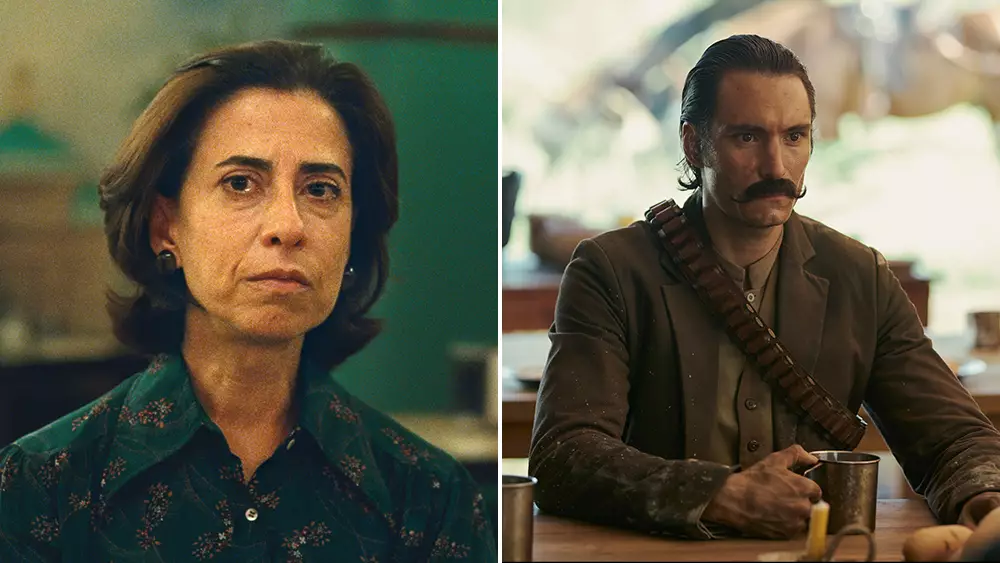The 12th edition of the Platino Awards, held in Madrid, served as a grand spectacle to honor the finest talents in Ibero-American film and television. However, beneath the glimmering facade of triumph and celebration lies a realm of glaring disparities—disparities that speak volumes about the progress yet to be made in amplifying diverse voices within the industry. This year’s event brought major accolades for the Oscar-winning Brazilian film *I’m Still Here*, alongside an impressive showing from Netflix’s adaptation of *One Hundred Years of Solitude*. Yet it begs the question, are we genuinely embracing inclusivity, or are we merely paying lip service to it?
The Unattended Winners: A Lack of Representation
While the evening boasted wins for notable figures like director Walter Salles and actress Fernanda Torres, their absence was palpable. In an era where representation is increasingly crucial, one can’t help but critique the lack of presence from key award winners. It’s not merely an oversight but a striking reminder that the allure of the red carpet does not always extend to those who carve the path. What does it mean for Latinx artistry when those who mold and define it are often left out of the very narratives constructed around them? This observed absence reflects a persistent trend: despite recognition, our heroes are not always celebrated in their own spaces.
Furthermore, while accolades for *One Hundred Years of Solitude* were justified, it is essential to interrogate whose stories are being told and who is telling them. The power dynamic in storytelling, especially in adaptations, raises important concerns. Is it sufficient for Netflix to redefine a classic for contemporary audiences if the voices sought are predominantly external? Merging respect for the source material with authentic representation requires diligence, and thus far we are still treading cautiously.
Eva Longoria: A Voice Beyond the Stage
Among the bright spots of the evening was the inspiring acceptance speech by Eva Longoria, who received the Platinum of Honor Award. Longoria brilliantly articulated her identity, merging her American upbringing with the deep-seated cultural roots of her Mexican heritage. However, the applause that echoed through the venue also signals a time for reflection. Longoria’s journey is emblematic of the aspiration shared by many Hispanic women in Hollywood—yet, she is one of the few who have broken through. The standing ovation was not merely for her accomplishments but perhaps also a yearning for more role models to emerge from the shadows.
There’s a dichotomy intrinsic to award shows that honor cultural contributions yet often marginalize those the awards are meant to uplift. Longoria’s achievements shine brightly, but they also cast light on the much larger narrative that is frequently overlooked: the systemic barriers that prevent myriad other talented creators from even glimpsing the stage.
Uneven Recognition: A Call for Equal Opportunity
Among the evening’s highlights were wins for esteemed filmmakers like Pedro Almodóvar, whose distinctive tone and vision possess the power to captivate global audiences. Yet, the praise he receives must not overshadow emerging voices in cinema who struggle to gain traction. The overwhelming reliance on established names raises a critical discussion regarding accessibility for innovative storytellers on the rise.
Film and television should transcend the traditional molds of success; they should uplift those who innovate outside the Eurocentric or Hollywood-centric narratives. Just as award winners like Jairo Camargo and Classic Films such as *The Echo* were recognized, there remains a collective responsibility to ensure diverse talents find their opportunity in the limelight. Hollywood seems enamored with the familiar, but does it not owe its audience the creativity found in new perspectives?
Looking Ahead: Navigating the Challenges
As the night concluded with resounding applause, it simultaneously left questions hanging in the air. Are we truly inclusive if award ceremonies still lean heavily on the same narratives? The Platino Awards cartoonishly celebrate excellence while time and again leaving underrepresented creators without a space to contribute their stories.
Such evocations must not be merely decorative footnotes in the names of successful films and series; inclusion has to be an intentional practice, woven into the fabric of our storytelling. The question posed by a vibrant night of accolades and acceptance speeches is whether we can transcend the optics of celebration and push towards a reality where every voice, regardless of background, gets the stage it deserves. In these profound moments, we must emphasize the need for continuous reflection and dialogue, ensuring that next year’s ceremony echoes with the sounds of a chorus, not mere echoes of powerful individuals.


Leave a Reply